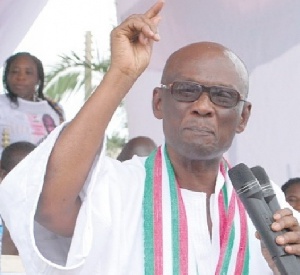 CPP Chairman Professor Edmund Delle
CPP Chairman Professor Edmund Delle
The Convention People’s Party (CPP) has supported the Electoral Commission’s decision not to delete names of persons who registered as voters with their National Health Insurance Scheme (NHIS) identification cards ahead of the 2012 polls.
The Supreme Court has ruled that such individuals should be deleted from the voter roll and given another opportunity to re-register.
The Electoral Commission, however, after studying the Supreme Court’s ruling said its understanding did not suggest the use of any new process to delete the names of those who registered with NHIS cards, other than the existing processes for removing ineligible voters.
This interpretation has drawn sharp criticisms from some lawyers and politicians.
But CPP Chairman Professor Edmund Delle, speaking to Class News’ Paa Kwesi Parker-Wilson in an exclusive interview, said it will be unfair if the Supreme Court’s ruling takes retrospective effect.
“My understanding is that people at that time when they were registering, that card was valid. And, so, you cannot go and punish people retrospectively – that one, I will not agree”, he stated.
“If [the Supreme Court’s decision] is retrospective, I think it is unfair, if at that time, they said you could use the National Health Insurance Card to register and it was valid. …When the Supreme Court came out with its recommendation, it insisted that [NHIS cards] should not be used and that it is not valid, so, it is from now onwards that one could say, no, if you use it [it is invalid], but you cannot use it retrospectively, so you let people suffer.
“If a law passed 10 years ago was saying that you could do this, then you come and say today go back and punish those people, I don’t think it is fair”, Professor Delle said.
Professor Delle’s opinion ties in with that of the leader of the All People’s Congress (APC), Dr Hassan Ayariga, who argues that the NHIS card could pass for a national identification document, therefore, people who registered with it as voters, should not be deleted from the roll as suggested by the Supreme Court.